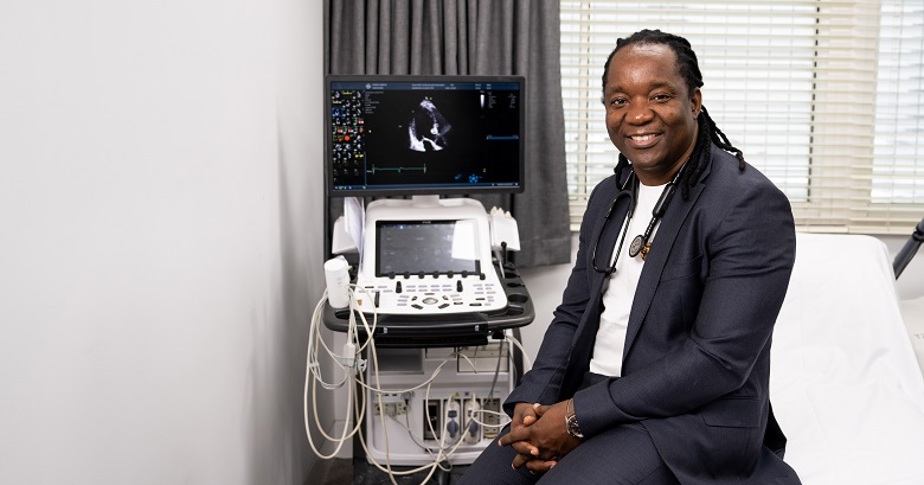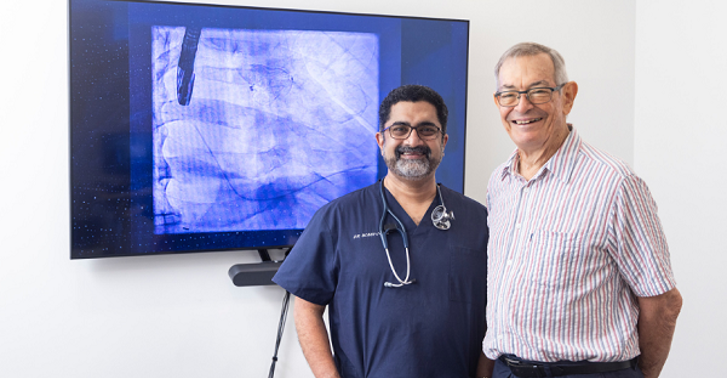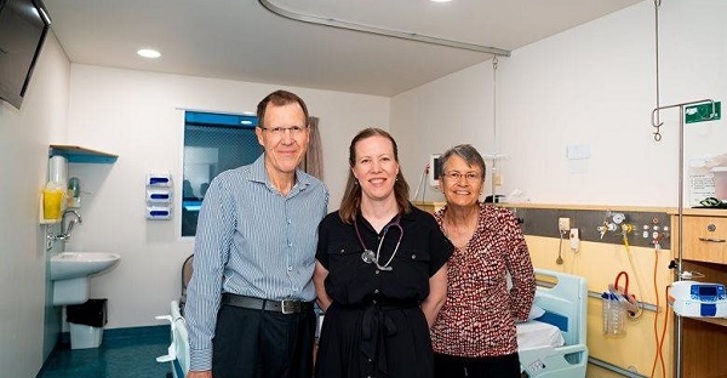
This Heart Week (6-12 May), a Townsville cardiologist and senior James Cook University lecturer is warning of an epidemic sweeping the world – and young North Queenslanders are in the firing line.
Dr Soniah Bigie Moloi outlined that atrial fibrillation – a heart disease characterised by an irregular and often faster heartbeat – was typically classified as a disease for elderly patients, but is becoming more common among young people.
“If you look at atrial fibrillation, it’s an epidemic in the sense that it used to be a disease of ageing. But now because of lifestyle issues permeating our society, we see this problem in very young people in their 20s and 30s,” Dr Moloi said.
“This is because of growing trends in things such as obesity, sedentary lifestyle, lack of exercise and sleep apnoea, which are all growing issues.”
This is supported by data from the Australian Institute of Health and Welfare, outlining one in four children (1.2 million people) and two in three adults (12.5 million people) are either overweight or obese in Australia.i
Dr Moloi said it would be a team effort, between the medical community and the general public, to change the morbidity and mortality figures associated with atrial fibrillation.
“We see atrial fibrillation as both a disease and a symptom: it causes death, it causes disability, and that is why we have become so pedantic about looking for it, treating it, preventing its sequalae,” said Dr Moloi.
Mater Private Hospital Townsville Acting General Manager Anna Olson said Heart Week was a timely reminder for all North Queenslanders to remind themselves of easy lifestyle changes to reduce the risk of heart diseases.
“This Heart Week, Mater is reminding all Queenslanders to be aware of the signs and symptoms of heart disease, and to flag these with your GP before these symptoms escalate or you suffer an event,” Ms Olson said.
“Anything from pain and tightness in your chest to extended trouble breathing, ongoing nausea and dizziness and even difficulty sleeping can be attributed to potential heart issues and should be flagged with your GP or a specialist.
“Easy lifestyle changes we can all make to reduce our risk of suffering a cardiac event include drinking at least 2L of water daily, keeping a balanced diet including fruit and vegetables, not drinking more than two cups of coffee a day, and exercising moderately at least three times a week.



